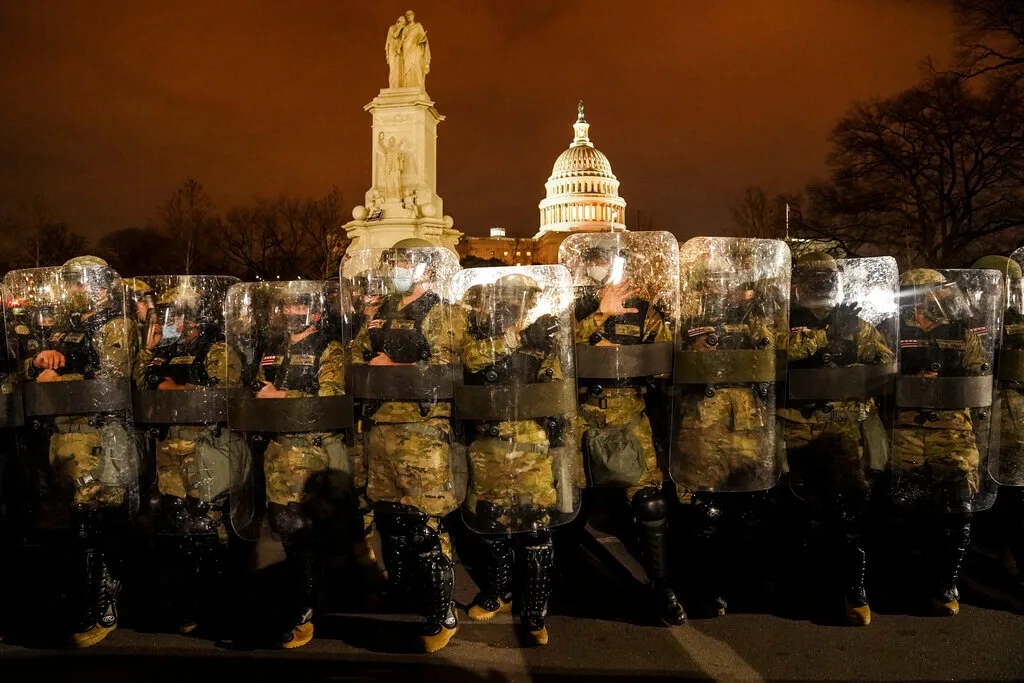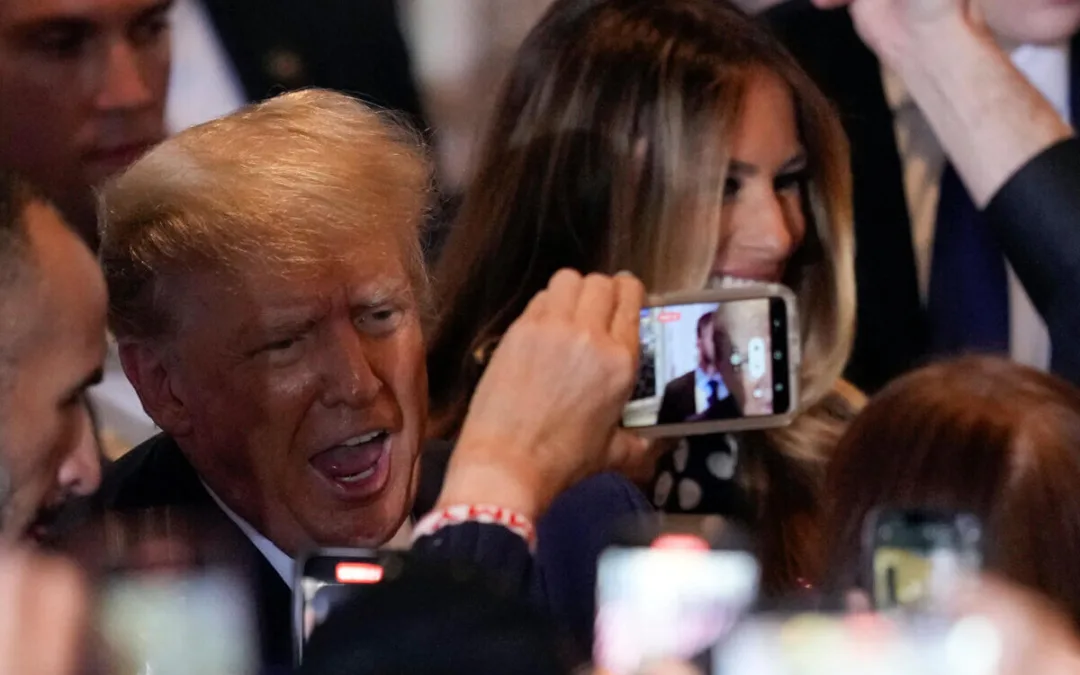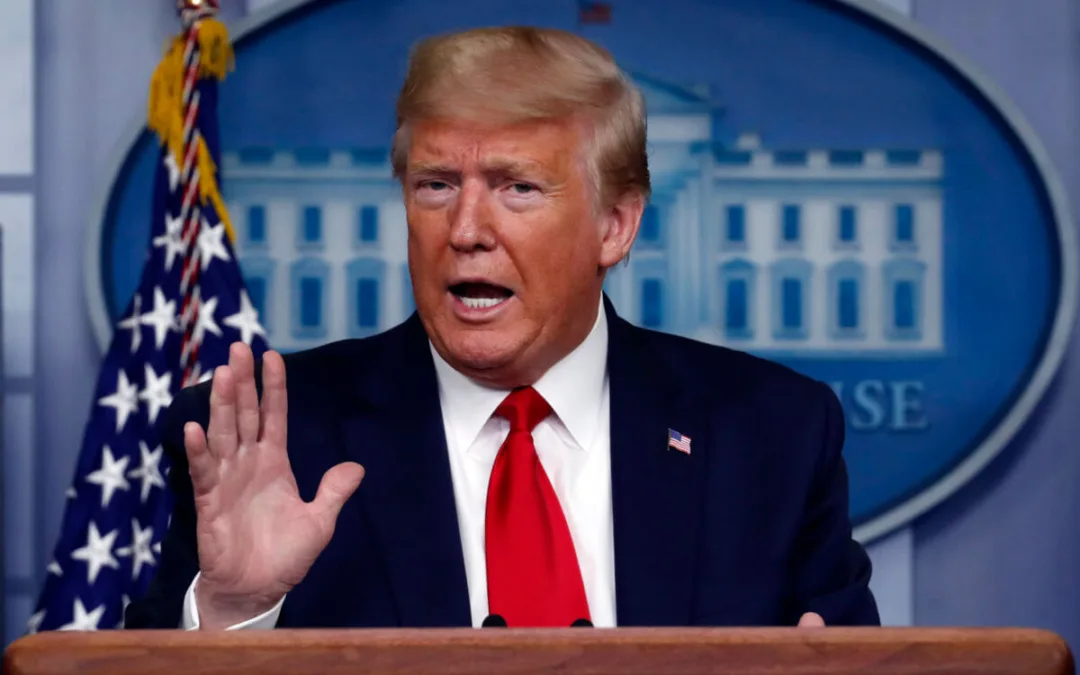
Image via AP Photo/John Minchillo
An expert said Wednesday’s events in the Capitol question the moral authority of the United States regarding future involvement in international conflicts—something the country has done throughout history.
The shocking images of a violent mob storming the US Capitol brought to mind similar events that have happened in Latin America throughout history.
The authorities’ reaction to the insurrection has led many to comment on how the US government reacted differently to this incident of domestic terrorism compared to coup d’états abroad.
RELATED: Black and Latino Groups Unite and Demand Trump Be Removed From Office Right Now
José R. Rivera-González, Universidad de Sagrado Corazón professor in San Juan, Puerto Rico and an expert in international politics, said Americans have generally viewed foreign coups with indifference, support, or condemnation, depending on where the incidents happen.
He said that in Venezuela, for example, US political elites have condemned Nicolás Maduro’s takeover of the government, as well as the United Socialist Party of Venezuela.
“The gap opened in the United States is extremely worrying—it takes away the moral authority to make any claim in any country,” Rivera told The Americano.
The United States has been involved in numerous conflicts surfacing in Latin America mainly in the 20th century.
As an example, the professor mentioned Chile. Between 1970 and 1973, the country went through a politically tense period with the socialist government of Salvador Allende. A group of military officers led by General Augusto Pinochet, with the help of the Central Intelligence Agency (CIA), created a power vacuum that would allow the local army to intervene.
“The result was 17 years of dictatorship, the persecution of leftist dissidents, and the implementation of an economic model that brought prosperity to Chile at a high price,” Rivera said.
The professor mentioned other interventions, such as the “systematic support of regimes” mostly in Central American countries, including Guatemala, El Salvador, and Nicaragua before the Sandinistas arrived.
“The United States provided the government of Colombia with unconditional support against FARC guerrillas,” Rivera said, “as well as support for the Alfredo Stroessner dictatorship in Paraguay, the military dictatorship of Brazil, the dictatorship of Marcos Pérez Jiménez in Venezuela, and the Fujimori self-coup in Perú. The US supported the dictatorship of Trujillo in the Dominican Republic and Batista in Cuba.”
A Very Different Story
How the police treated the mob entering the Senate, offices of representatives, and other Capitol locations was in sharp contrast to how four Puerto Rican nationalists were treated in 1954 when they entered the House Chamber.
On March 1, 1954, Rafael Miranda Cancel, Irvin Flores Rodríguez, Andrés Figueroa Cordero, and Lolita Lebrón shouted, “¡Viva Puerto Rico libre!” (Long live a free Puerto Rico!) as they entered the floor of the House of Representatives, firing guns and injuring five members.
The independence advocates were immediately arrested. On Oct. 26, 1954, the jury found all of the defendants guilty of conspiracy.
The sentence was 75 years of imprisonment for the men, except Miranda Cancel, who got 85 years because he was considered the primary shooter. Lebrón was sentenced to 50 years in prison.
In 1979, President Jimmy Carter commuted the sentences of Lolita Lebrón, Irvin Flores, and Rafael Cancel Miranda after they had already served 25 years. Figueroa was released earlier because of terminal illness.
The act of breaking into the Capitol—which represents the institution of American government—was similar to what happened on Wednesday.
“They were clearly given long sentences for seditious conspiracy,” Rivera said. “The people [who now ambushed the Capitol] committed a similar act. They violently broke into the Congress of the United States, one of the most revered institutions after the presidency. They clearly committed what is seditious conspiracy, high treason, and something they do not want to call—domestic terrorism.”
Rivera points out that motives must also be recognized—both incidents involved violent, intimidating acts. The current situation subverted the voter’s choice of Joe Biden as president.
“We have these people who have decided—with an anti-civil, anti-patriotic, and anti-American attitude—to say no, the one we want is this [person], despite the fact more than 80 million voted for Biden,” Rivera said.
“The United States looks bad, but not just now,” Rivera said. “The US has had a bad term in the eyes of its allies and commercial partners, and especially its adversaries and enemies.”
The professor mentioned the trade war Trump began against China, how the president rallied against the North Atlantic Treaty Organization (NATO), failed to favorably renegotiate the free-trade agreement for North America, and withdrew from environmental agreements, as well as the Trans-Pacific and Trans-Atlantic agreements.
RELATED: Latino Lawmakers: ‘The Domestic Terrorism’ in Nation’s Capitol Is ‘Trump’s Fault Alone’
Rivera said Trump implemented an isolationist agenda at a time when the world needs stability, especially because of the pandemic.
“At a time when collaboration among nations had to be fostered to try and find a solution to the pandemic, the already implemented isolationist agenda of the United States mishandled the pandemic—especially its leadership,” Rivera said. “There was no collaboration—only recrimination—from the United States towards China, where the coronavirus began.”
Politics

Teamsters and UPS Reach Tentative Deal to Avoid Strike, 340,000 Workers to Get Raises
The tentative deal represents a huge win for full- and part-time UPS Teamster workers, who would get significant pay raises and better working...

One Republican Senator Is Blocking 265 Military Promotions, Leaving the Marines Without a Confirmed Leader
Sen. Tommy Tuberville's decision means these military officers are not getting the pay raises they’re owed, cannot move their families to wherever...
Local News

Teamsters and UPS Reach Tentative Deal to Avoid Strike, 340,000 Workers to Get Raises
The tentative deal represents a huge win for full- and part-time UPS Teamster workers, who would get significant pay raises and better working...

One Republican Senator Is Blocking 265 Military Promotions, Leaving the Marines Without a Confirmed Leader
Sen. Tommy Tuberville's decision means these military officers are not getting the pay raises they’re owed, cannot move their families to wherever...




